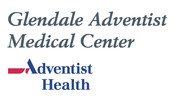|
|

|
« Back
Knee Injury Causes Faulty Wiring--in the Other Leg
|
Posted on: 07/30/2003
|
A torn anterior cruciate ligament (ACL) in the knee can start a chain reaction of problems in that knee and leg. Recent research has suggested that an ACL injury can also cause problems in the other leg. Somehow a neurological response called the gamma loop becomes interrupted. The gamma loop controls normal muscle tension and assists in muscle activation--in this case, in the quadriceps muscles in the thigh.
These authors studied quadriceps strength in two groups of people. One group had a torn ACL, and one group had healthy knees. The uninjured leg was tested in the group with the torn ACL. Quadriceps strength was tested. Then the subjects went through 20 minutes of vibrations to the leg. Vibrations are known to interfere with the gamma loop, causing decreased strength. As expected, the healthy group showed decreased strength after vibration. But the group with injured ACLs had no reduction in strength, a clear sign that the gamma loop was not working properly.
No one is sure why the quadriceps in the opposite leg would be affected by an ACL tear. These authors suggest ways that nerve signals from the injured ACL could be applied to both legs by the nervous system. They recommend that larger studies be done to support these findings. Understanding how the body reacts to ACL tears would help doctors and therapists develop more effective rehabilitation plans for patients who have a torn ACL.
|
References:
Yu Konishi, et al. Gamma Loop Dysfunction in Quadriceps on the Contralateral Side in Patients with Ruptured ACL. In Medicine & Science in Sports & Exercise. June 2003. Vol. 35. No. 6. Pp. 897-900.
|
|
|
« Back
|
|
|
|
*Disclaimer:*The information contained herein is compiled from a variety of sources. It may not be complete or timely. It does not cover all diseases, physical conditions, ailments or treatments. The information should NOT be used in place of visit with your healthcare provider, nor should you disregard the advice of your health care provider because of any information you read in this topic. |
 | All content provided by eORTHOPOD® is a registered trademark of Mosaic Medical Group, L.L.C.. Content is the sole property of Mosaic Medical Group, LLC and used herein by permission. |
|
